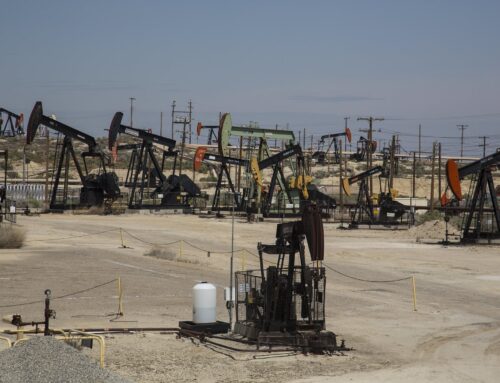This week, I was offered the opportunity to present public comments and concerns on behalf of the taxpayers to Secretary Ryan Zinke and the Department of the Interior regarding the newly re-established Royalty Policy Committee.
The short version: My organization Taxpayers for Common Sense is concerned there is no one on a committee of 38 people (including 18 alternates) to advocate or speak up on behalf of the taxpayer.
I put my name forward to serve on the committee and play that role, but there are many others who could have done so as well as or better than I could. Yet, not one of the committee members has a history as an advocate for taxpayers. That is a problem for a group charged with assessing how public resources are valued and reviewing policies to determine whether taxpayers are fairly compensated for those resources, through rents, royalties and fees.
The fair valuation of taxpayer-owned resources, and accurate collection of resulting revenue and royalties, is vitally important.
It ensures that taxpayers receive the revenues they are owed from the natural resources we all own. Royalty revenues represent a significant portion of non-tax federal revenue and are an important source of income for the federal government. But the system has been broken.
For decades.Taxpayers for Common Sense has worked on this issue since 1995 and released a new report this week; it’s entitled “Locked Out” for a reason. The report details the extent to which thousands of oil and gas leases sit idle, not producing a drop of oil or gas, and not available for any other public use. The oil and gas companies pay very little to hold these lands so there is no disincentive to tying up these lands from other uses. In fact, the numbers from our report are sobering, starting with how the Bureau of Land Management has not increased rental rates since 1987.
Adjusting for inflation alone, as measured by the Bureau of Labor Statistics, $1.50 in 1987 is equivalent to $3.17 in 2016 dollars, and $2.00 is now $4.23.
The difference between the inflation-adjusted rents and the actual rents charged for leases means there is a large amount of revenue owed that’s not being paid to the taxpayer. It is certainly a shocking amount of money left on the table in the face of a $19 trillion national debt.
Over the last decade, I have testified numerous times before Congress on our faulty oil and gas leasing program and broken royalty collection system. The Government Accountability Office has had Interior’s oil and gas leasing program on its high-risk list for waste, fraud and abuse since 2011.
It is a problem that has transcended both Republican and Democratic administrations.In March, we welcomed Zinke’s stated goal for the Royalty Policy Commission to “ensure the public receives the full value of the natural resources produced from Federal lands.” But since then, the administration has taken several actions that undermine the ability of Interior to receive appropriate revenues for federal taxpayers. Simply making more federal lands available and limiting and repealing regulations on resource extraction, while fulfilling industry requests, do not ensure that taxpayers that they will receive appropriate revenues to address the nation’s fiscal priorities, and worse yet, these actions will lead to greater taxpayer liabilities down the road.
Bottom line: Over the years taxpayers have lost billions on royalty-free oil and gas leases, undervalued coal leases and royalty-free hard-rock mineral operations on federal lands. The Royalty Policy Committee has an opportunity to change that and institute much-needed reforms.
For the sake of making a dent in our daunting national debt, we hope that despite the absence of a taxpayer advocate, the new committee will put the nation’s resource owners – federal taxpayers – first.










